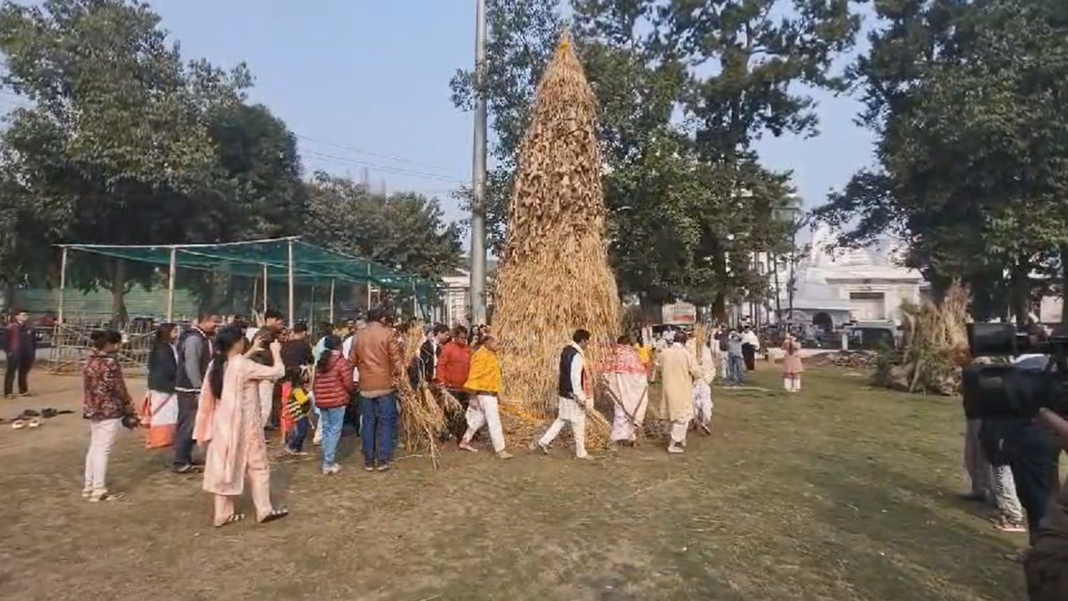Guwahati, Jan 14: Burning mejis signifies the thanks giving for a bountiful harvest, has a deep rooted significance in Assamese tradition, with cultural, historical and agricultural roots.
Festivities marks the end of the old agricultural cycle and the beginning of a new one, where the community comes together to seek blessings. The mejis are often filled with harvested crops, such as rice and other grains, before they are burnt. This is a way farmers offer thanks to gods for a successful harvest and seek continued prosperity for the coming year.
While there are concerns about the environmental impact, people are finding ways to make the tradition more sustainable.
As part of traditional puja on the day of Makar Sankranti, Meji was burnt in various locaties of the city in the morning, at Latasil in Guwahati, elderly from the community along with children and women were present for burning the meji.
Magh Bihu, also known as Bhogali Bihu, is one of the iconic traditional festival of Assam.
Read: Meghalaya’s Secret Weapon Against Malaria: How Social Networks Are Saving Lives
WATCH:
Find latest news from every corner of Northeast India at hubnetwork.in, your online source for breaking news, video coverage.
Also, Follow us on-
Twitter-twitter.com/nemediahub
Youtube channel- www.youtube.com/@NortheastMediaHub2020
Instagram- www.instagram.com/ne_media_hub
Download our app from playstore – Northeast Media Hub





